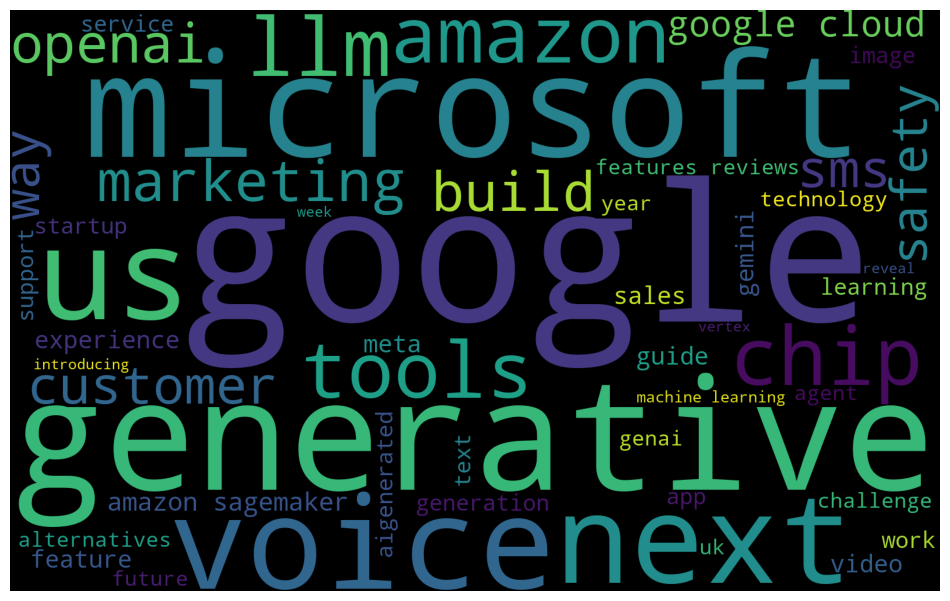3 LLMs in 12 Hours, Spotify AI, AI Chips — Top AI News as Selected by AI
The editorial team of Anywhere Club asked Claude 3 Opus to analyze popular media platforms that cover AI news and create a summary of the top 10 recent stories.

1. AI is Revolutionizing Industries – Where Does it Really Excel?
Other than manual labor, is there any business arena that can’t be enhanced with AI? From agriculture to virtual reality, AI tools and technologies are enhancing efficiency, productivity, and customer experiences across industries. Customer service is the leading GenAI priority among business executives, encouraged by the experiences of companies like UK energy supplier Octopus Energy, which is currently using ChatGPT to do the work of 250 people. Leveraging AI for the personalization of the customer experiences is another booming use, with food industry giant McDonalds leaning in to AI solutions for automated order taking technology. And even the traditionally human-intensive work of human resources departments is seeing in increase in AI use for screening candidates, assessing employees for promotion, and answering routine questions. From automating tasks to providing insights and driving innovation, AI has the potential to transform how businesses operate.
2. 3 New Open-Source LLMs in 12 Hours
After lurking in research labs for more than a decade, LLMs proliferated after the success of ChatGPT. There are now dozens of significant LLMs, and many more with niche audiences. The level of competition in the industry is illustrated by the fact that Google, OpenAI, and Mistral all released their latest offerings within 12 hours of each other. Google’s Gemini Pro 1.5, Open AI’s GPT-4 Turbo, and Mistral’s 8x22B all hit earlier this week, and Meta’s newest version of Llama is expected within weeks. The release of these models helps democratize access to advanced AI capabilities, potentially accelerating AI adoption and innovation across industries.
3. Spotify AI Playlists
Building on the success of its AI DJ, Spotify introduced an AI playlist option in beta this week for users in Australia and the U.K. The new feature allows users to create a wide variety of playlists tailored to their unique interests using written prompts. Other companies using AI to personalize their customer engagement include eBay, which released a “shop the look” feature this week to suggest fashion options based on customers’ shopping histories. AI-powered searches and recommendations can help users discover relevant content, products, and services more easily, potentially driving business engagement and revenue.
4. Are Undetectable Deepfakes the Future?
As GenAI technology increases in sophistication, the tell-tale signs of fake or manipulated images are on the wane. Manual techniques that were effective in identifying fake images are time-consuming and are no match for the increasingly sophisticated AI models. Tech companies have produced labels and watermarks to identify AI-generated content, but that is – at best – a partial solution. Ultimately, it is an “an arms race between detection and creation” of AI-generated deepfakes and misinformation that can undermine trust in media, disrupt democratic processes, and pose challenges for content moderation and fact-checking.
5. AI Coding Tools for Developers
Will AI models help or hurt developers? We don’t know yet. But Google’s Gemini Code Assist and Microsoft’s GitHub Copilot are AI-powered coding tools designed to help developers write more code and do it faster. Tech start-ups have offerings as well. Will AI coding tools eventually eliminate some coding jobs? Maybe, but we don’t seem to be there yet and, in the meantime, AI-powered developer assistants could boost productivity, reduce errors, and lower the barrier to entry for software development and cloud management.
6. Dr. AI
Sepsis, a serious medical condition, kills millions of people around the globe annually. A simple blood test, used in conjunction with AI, could identify it more quickly, before patients experience the onset of organ failure. AI assessment is also being studied for use in identifying and monitoring depression, potentially helping to ameliorate the shortage of mental health professionals. The increasing use of AI in healthcare may improve the speed and accuracy of diagnosis, reduce administrative burdens on doctors, and potentially enhance patient outcomes.
7. AI-Powered Chips and Infrastructure
Google, Intel, Meta, Nvidia, and TSMC are all developing high-end specialized chips and infrastructure optimized for AI workloads. Startups are also getting in on the action. Optimized CPUs offer significant performance increases, and chips that need less energy can run AI in more dynamic environments. Purpose-built AI chips and infrastructure could enable faster, more efficient, and more cost-effective training and deployment of AI models, accelerating AI innovation across industries.
8. AI Exam Graders
Open-ended questions can be a valuable student testing tool, but they can be burdensome and time-consuming to grade. State-mandated exams taken by students in Texas this week will be graded by an AI-powered scoring engine. The State expects the new grading system to save $15-20 million per year. AI tools are also being used by schools to power educational games, create adaptive learning activities, automate feedback, provide personalized support, and assist with writing and research tasks in educational settings.
9. 24/7 Customer Service and Support with AI
Businesses are deploying AI-powered chatbots, virtual agents, and voice assistants to provide 24/7 customer support, instant answers, personalized recommendations, and streamlined issue resolution. Surveys suggest that the level of accuracy and professionalism offered by AI leaves a positive impression on customers and drives loyalty and repeat business. Using AI can also help alleviate employee burnout in what has been deemed one of top 10 most stressful jobs in the world.
10. EU and US Joint Statement Regarding AI
Governments and organizations around the world are discussing the need for regulations, guidelines, and safeguards to address the ethical implications and potential risks of AI. These include bias, privacy violations, and job displacement. A recent joint statement by the EU and the US affirmed their intention to increase cooperation regarding the safety and governance of AI, and an intent to collaborate on other issues.

.png)
